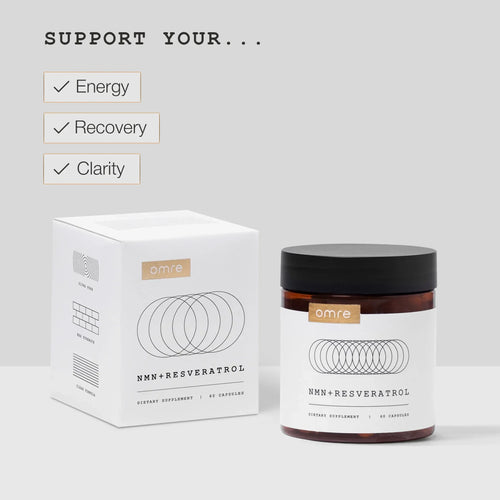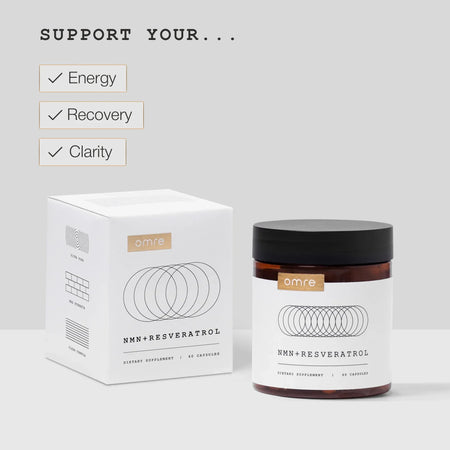Table of Contents
NAC and NAD are two supplements often confused because of their similar names, but they play very different roles in the body.
If you are comparing NAC vs NAD, the key is knowing what each one does, how they work, and which health goals they support.
Key Summary:
-
NAC and NAD are not the same: NAC is an amino acid derivative, while NAD is a cellular coenzyme.
-
NAC supports detoxification, liver health, antioxidant defense, and respiratory function.
-
NAD powers energy production, DNA repair, brain health, and anti-aging processes.
-
Both can be used together for complementary benefits, but your choice depends on your health goals.
Cellular NAD+ booster with ultra‑pure NMN and Resveratrol, at research‑backed doses.*NMN + RESVERATROL
Are NAC and NAD the Same?
-v1758861517230.webp) No, NAC and NAD are not the same. NAC (N-Acetyl Cysteine) is a supplement derived from the amino acid cysteine that helps the body make glutathione, a major antioxidant. NAD (Nicotinamide Adenine Dinucleotide) is a coenzyme found in every cell that powers energy production and cellular repair.
No, NAC and NAD are not the same. NAC (N-Acetyl Cysteine) is a supplement derived from the amino acid cysteine that helps the body make glutathione, a major antioxidant. NAD (Nicotinamide Adenine Dinucleotide) is a coenzyme found in every cell that powers energy production and cellular repair.
The two may sound alike, but they have very different jobs. NAC is mostly known for detoxification, liver protection, and supporting respiratory health.
NAD is tied to energy, brain function, and slowing age-related decline.
Think of NAC as the body’s “clean-up crew” that helps remove toxins, while NAD acts as the “power switch” that keeps energy and repair processes running smoothly.
Both are valuable, but they are not interchangeable.
What is NAC (N-Acetyl Cysteine)?
NAC is a supplement made from cysteine, an amino acid you can also get from foods like chicken, yogurt, and eggs. It works by replenishing glutathione, often called the body’s “master antioxidant.”
NAC’s most recognized role is in detox support. Hospitals use it to treat acetaminophen (Tylenol) overdose because it restores liver glutathione levels and prevents severe damage.
For everyday use, NAC is popular for its ability to support liver health, fight oxidative stress, and break down thick mucus in the lungs.
Beyond detox and respiratory benefits, NAC may also influence brain health. Research shows it can help regulate glutamate, a brain chemical linked to mood and focus.
This is why NAC is being studied for conditions like OCD, addiction, and depression.
What is NAD (Nicotinamide Adenine Dinucleotide)?
NAD is a coenzyme made from vitamin B3 (niacin) that is present in all living cells. Its primary job is to help mitochondria, the “powerhouses” of cells, convert food into energy. Without NAD, cells cannot produce the fuel they need to function.
NAD exists in two forms: NAD+ and NADH. NAD+ is especially important for DNA repair, energy production, and regulating genes that affect aging.
However, NAD levels naturally decline with age, leading to fatigue, cognitive changes, and a higher risk of age-related conditions.
Because direct NAD supplements are not well absorbed, many people use NAD precursors such as NMN (nicotinamide mononucleotide) or NR (nicotinamide riboside).
These compounds raise NAD+ levels in the body, supporting energy, brain clarity, and long-term vitality.
How Do NAC and NAD Differ?
NAC and NAD differ in their chemical makeup, primary functions, and health benefits. NAC is an amino acid derivative that boosts antioxidant defenses and supports detoxification, while NAD is a coenzyme that supports energy production, DNA repair, and cellular health.
Here’s a side-by-side comparison to make it easy to see the differences:
Benefits of NAC
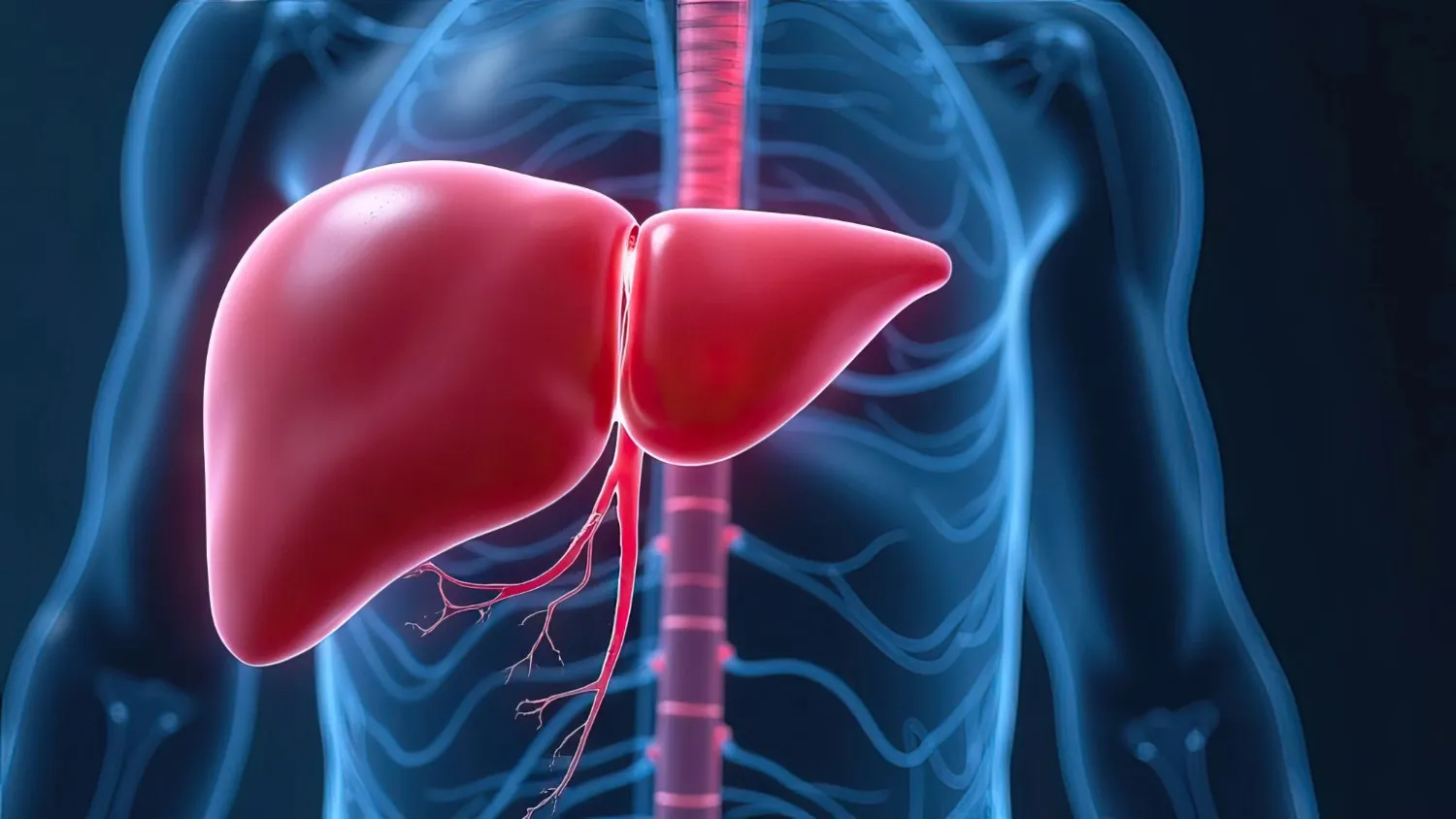 NAC is valued for its role in replenishing glutathione and reducing oxidative stress, making it useful across liver, lung, and brain health. Studies have found NAC can improve both clinical outcomes and everyday wellness.
NAC is valued for its role in replenishing glutathione and reducing oxidative stress, making it useful across liver, lung, and brain health. Studies have found NAC can improve both clinical outcomes and everyday wellness.
Liver protection: Widely used in hospitals for acetaminophen overdose because it restores glutathione and prevents liver failure (1).
Respiratory health: Studies show NAC helps thin mucus and improve lung function in conditions like COPD and chronic bronchitis (2).
Mental health: Research suggests NAC may reduce symptoms of OCD, bipolar disorder, and substance use disorders by regulating brain glutamate (3).
Antioxidant defense: NAC supplementation has been shown to reduce oxidative stress and inflammation, helping protect cells from damage (4).
- Immune support: By boosting glutathione, NAC strengthens immune defenses against infections and environmental toxins (5).
NMN + RESVERATROL
Cellular NAD+ booster with ultra‑pure NMN and Resveratrol, at research‑backed doses.*
Benefits of NAD
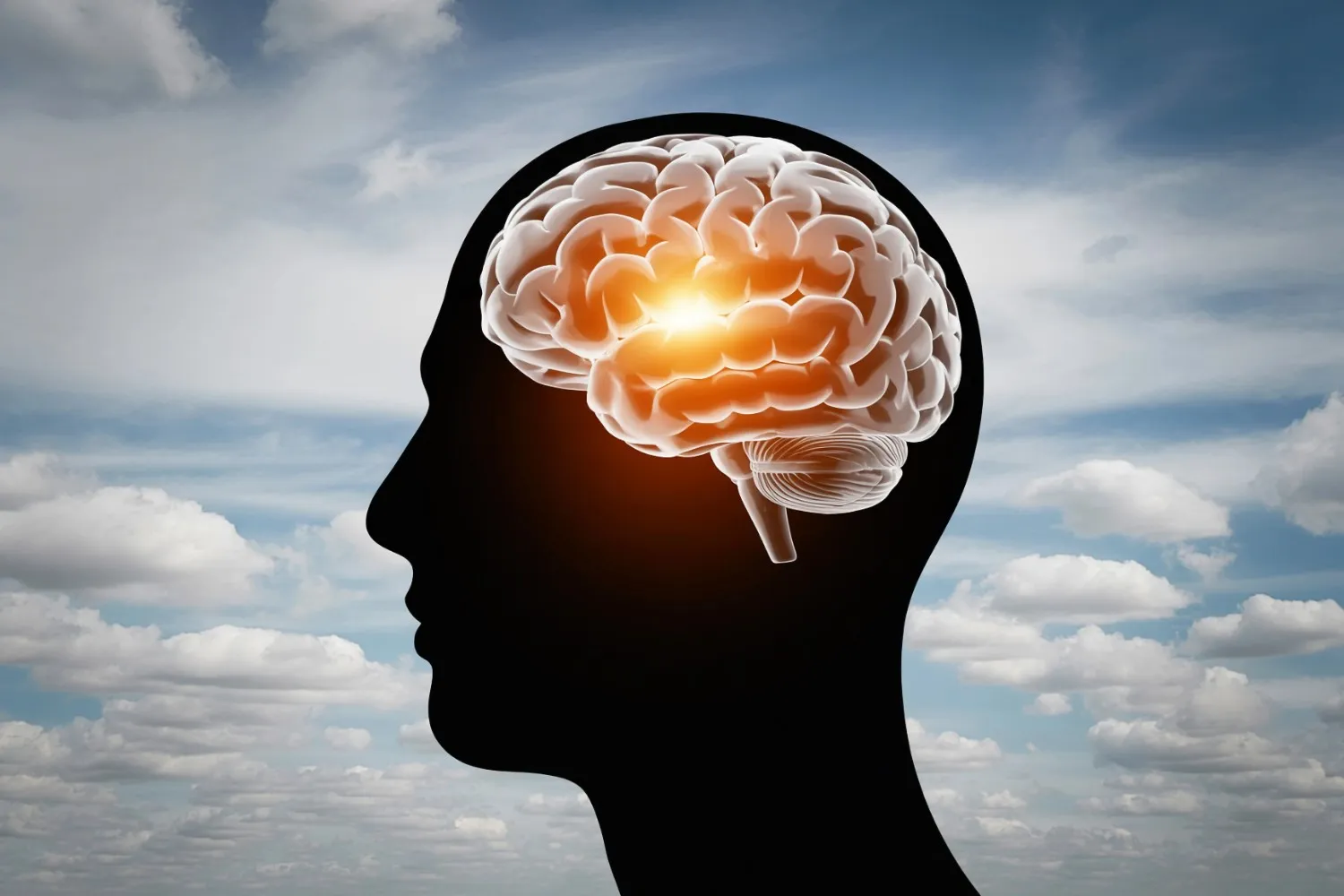 NAD is central to how cells make energy and repair themselves. Studies have found that raising NAD+ levels through precursors can improve energy, slow aspects of aging, and protect brain function.
NAD is central to how cells make energy and repair themselves. Studies have found that raising NAD+ levels through precursors can improve energy, slow aspects of aging, and protect brain function.
Energy production: NAD+ is required for mitochondrial ATP production, the fuel for all cellular activity. Higher levels support stamina and reduce fatigue (6).
Anti-aging support: Research links NAD+ to DNA repair and sirtuin activation, processes that slow biological aging. Studies in animals show extended lifespan and improved healthspan (7).
Brain health: Studies suggest NAD+ precursors like NMN and NR may enhance memory, learning, and protect against neurodegeneration (8).
Metabolic health: Higher NAD+ levels are associated with better insulin sensitivity, blood sugar control, and cholesterol regulation (9).
Cellular repair: NAD+ plays a direct role in repairing DNA and maintaining mitochondrial health, both critical for long-term vitality (10).
Disclaimer:
The benefits listed are based on current research, but supplements affect people differently. Always consult a healthcare professional before starting NAC, NAD precursors, or any new supplement.
Can You Take NAC and NAD Together?
Yes, NAC and NAD can be taken together. Since they work in different ways, NAC supports detoxification and antioxidant defense, and NAD drives energy and cellular repair, they complement each other rather than overlap.
Using both may be helpful for people exposed to high stress, toxins, or aging-related fatigue.
NAC can help the body process and clear toxins, while NAD precursors like NMN or NR keep energy and repair systems strong.
As always, it’s best to check with a healthcare professional before combining supplements, especially if you take medication or have a medical condition.
Which Should You Choose: NAC or NAD?
 Your choice depends on your health goals. Both offer unique benefits, and in some cases, using them together provides broader support.
Your choice depends on your health goals. Both offer unique benefits, and in some cases, using them together provides broader support.
Opt for NAC if:
You want stronger liver support or detoxification.
You struggle with chronic respiratory issues like COPD, bronchitis, or sinus problems.
You are looking for research-backed support for mental health and mood regulation.
You want to improve antioxidant defenses and reduce oxidative stress.
Opt for NAD if:
You are focused on anti-aging, longevity, and cellular repair.
You want to increase daily energy and reduce fatigue.
You’re looking to support brain function, focus, and memory.
You want better metabolic health, including blood sugar and cholesterol balance.
Conclusion
NAC and NAD may sound similar, but they play very different roles.
NAC is best known for detoxification, antioxidant support, and respiratory health, while NAD is the cornerstone of energy production, DNA repair, and long-term vitality.
Both have value, and your choice comes down to whether you want to target detox and protection, or energy and aging.
You’re probably wondering: should you add one, the other, or both? If you want energy, sharper focus, and healthy aging support, NMN + Resveratrol is one of the most effective ways to naturally raise NAD levels.
It’s backed by science, designed for absorption, and trusted by people who want to feel their best at every stage of life.
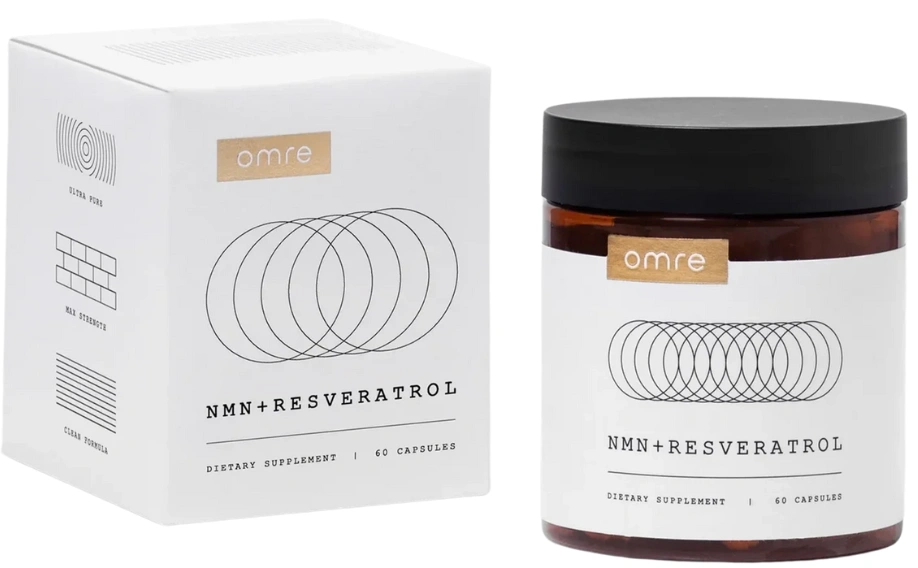 Take control of your energy and longevity today with NMN + Resveratrol.
Take control of your energy and longevity today with NMN + Resveratrol.
FAQs
Can NAC increase NAD?
NAC does not directly increase NAD, but it supports glutathione production, which helps protect cells where NAD is used. Some research suggests NAC may indirectly support mitochondrial health, but raising NAD levels usually requires precursors like NMN or NR.
Is it better to take NAC in the morning or at night?
Most people take NAC in the morning or early afternoon since it can increase alertness and energy. Taking it too late may interfere with sleep in sensitive individuals.
What foods naturally increase NAD?
Foods rich in vitamin B3 (niacin) can help the body make NAD. Examples include chicken, tuna, salmon, peanuts, and mushrooms.
How long does it take NAC or NAD precursors to work?
NAC’s effects, like thinning mucus or supporting detox, may be noticed within hours to days. NAD precursors such as NMN or NR may take a few weeks of consistent use to show benefits like better energy or focus.




